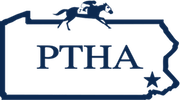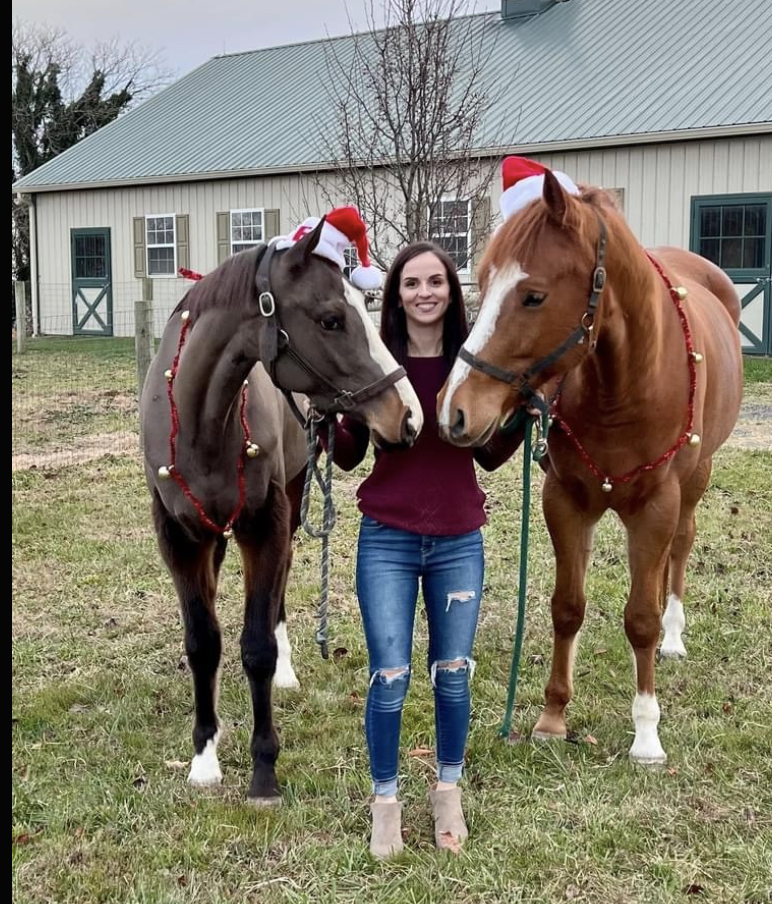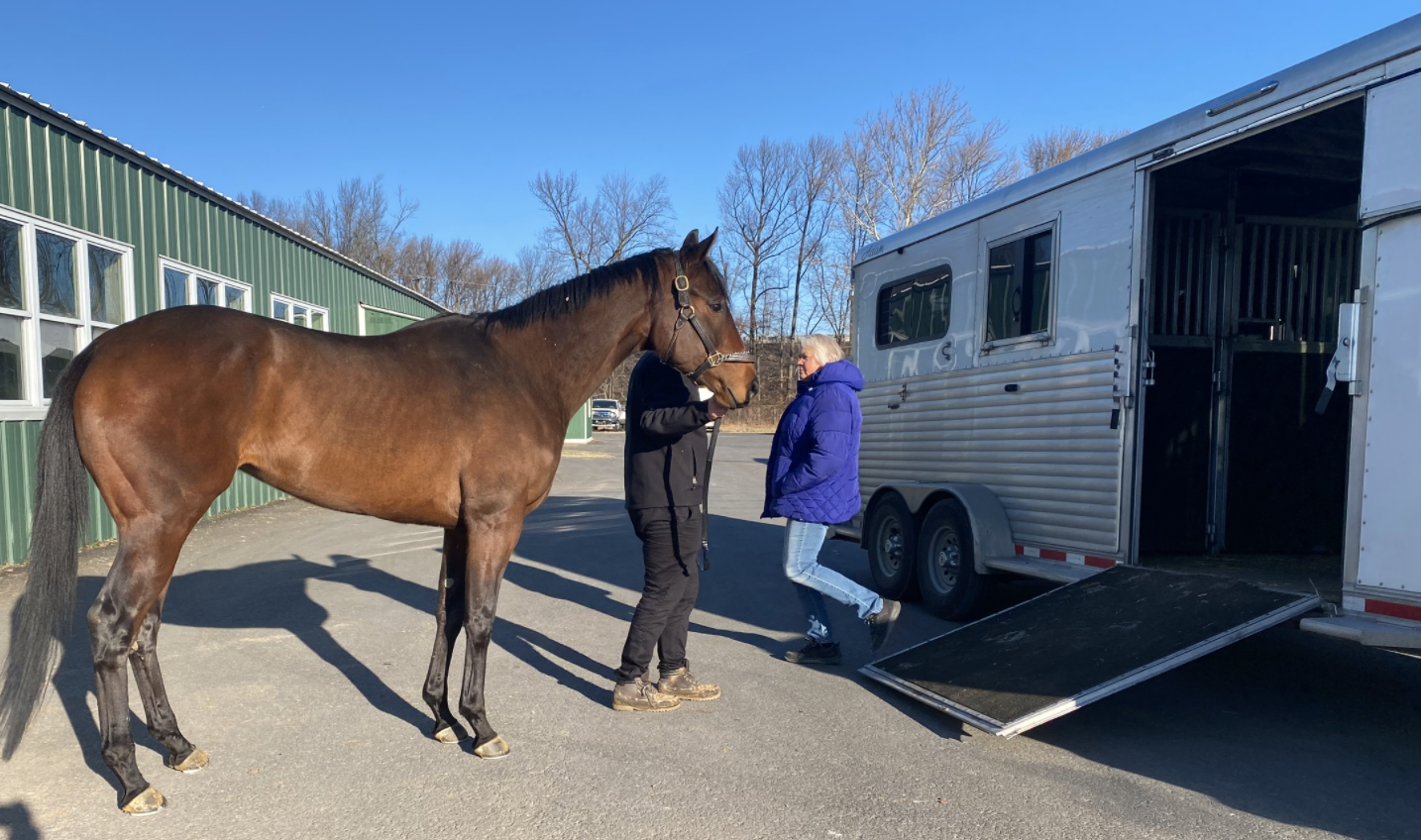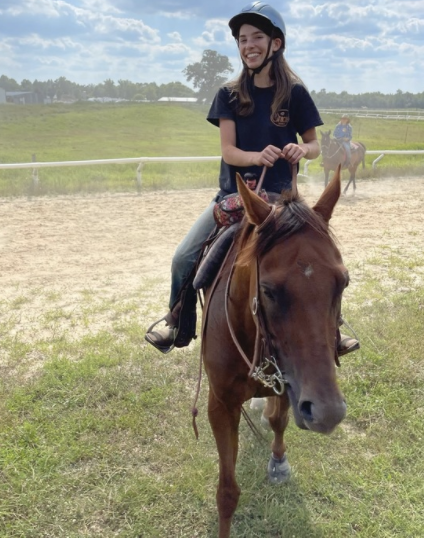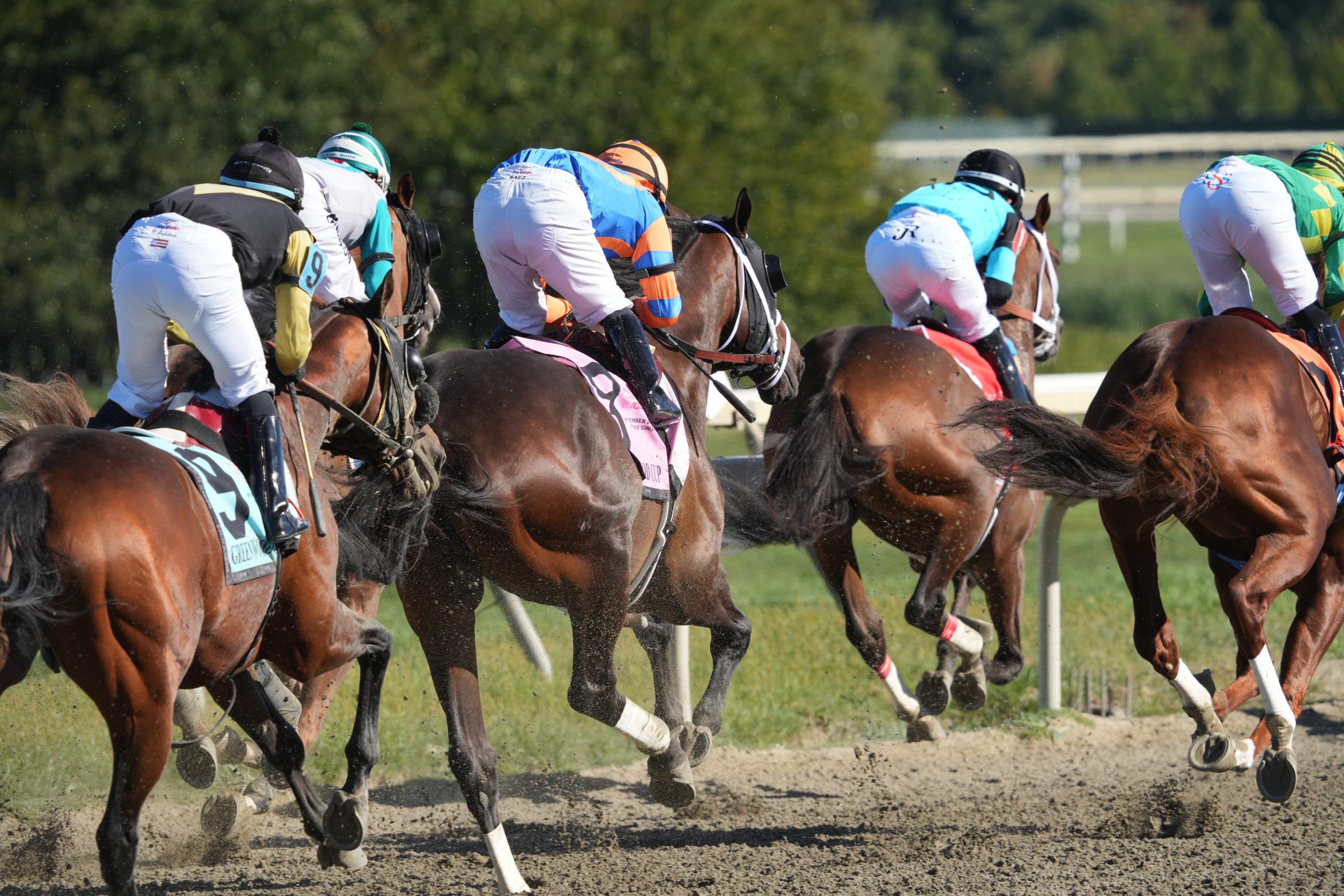
TURNING FOR HOME-A VILLAGE OF HELP FOR THE HORSES
BY JENNIFER STARR
Entering its 14th year, the Pennsylvania Thoroughbred Horsemen’s Association’s (PTHA) Turning For Home, based at Parx Racing in Bensalem, has helped over 3,450 Parx-based horses with rehabilitation, rehoming, and retraining once their racing careers have ended. These beautiful horses have given so much excitement to so many fans who have cheered and applauded for them, race after thrilling race. Once they are ready to retire, Turning For Home (TFH) works with carefully-screened partner farms to give these retired racehorses a new career; a new life after racing. To accomplish the task of transitioning these retired racehorses takes a ‘village’.
Turning For Home got its start when Michael Ballezzi, Esq., the long-time Executive Director of the PTHA saw a front-page article in the New York Times that mentioned horses involved in racing were breaking down, and after their racing careers ended were going to ‘bad places’. Determined to ensure that the horses that are so loved received care not only when they are racing, but that there is a plan for them when they leave the racetrack, he immediately began consulting with other organizations to formulate a firm plan for aftercare.
“He pulled the right people together and researched the pitfalls other organizations experienced,” said Danielle Montgomery of the PTHA. “He came up with a funding mechanism that’s still working right now. That was Mike’s genius. When he wanted to fix something, he thought it through from beginning to end, and his program was done right the first time. What he did to protect Parx horses with TFH has been praised by The Jockey Club as being light years ahead of its time, and is the pilot program that the industry has adopted.”
Danielle is quick to point out that the program is supported primarily by the racehorse owners through a donation at every start. “There is a misconception sometimes about purse distribution and horses being paid to run last. An excess amount would certainly be detrimental to non-competitive horses, but just to run on a race day, owners need to pay their help to run the horses and to cool them out, shipping costs, jock’s fees, as well as the costs of the numerous diagnostics tests, which are requested by the veterinarians. To offset those costs, the PTHA recommended distribution ofsurgical $250 to last, initiating the donation to TFH to encourage participation from the start.”
“We’re there for those horses,” she emphasized.
In addition, a partnership with the PA Breeders (PHBA), and donations from the public assists the program to make ends meet and help all the horses within their criteria.
Every time a jockey wins, they contribute to Turning For Home as well. “The Parx jockeys were the first jockey colony in the country to come together and support aftercare in a system like that, and we’re really proud of them,” Danielle said. “They do love the horses they ride every day, and it shows.”
Once a horse enters the program, paperwork is collected, and a basic background is obtained from the trainer, looking for any special needs or any behavior that needs to be addressed. A colt needs to castrated and if there are injuries, they are immediately checked and the injury properly rehabbed. “We’re right there at the track,” Danielle said. “So we’ll talk with our veterinarians and we’ll get diagnostics to make the best decisions for that horse as far as their rehab plan; and whether or not surgical intervention will help. Many of the horses are not competitive after they win their conditions, and they can go right on to something else. This is a demanding sport, and without the help of generous equine surgeons such as Janik Gasiorowski, Jessica Tyma, Patty Hogan, and their associates donating their expertise, we would not be able to help as many horses as we do to go on competitively.”
Just as important to the prospect of a full recovery is individualized rehabilitation. “It’s my job to facilitate the movement of the horses from the track to the correct farms,” she said. “While all of our farms are equally important to our cause, each is a specialist in its own way, from the facilities they offer to their range of experience and the specific disciplines they will retrain in. It’s my job to match everyone up for success.”
A horse that enters the program often doesn’t have to wait very long to move on to their next destination. “Our average this year was 8.6 days from the time they put the horse into the program until we would get them moved,” Danielle described. “Sometimes, especially over the holidays, the horse may have to stay at Parx until I’d find a stall. But generally, my team stays in touch, and sometimes the horse is picked up the next day if he’s reasonably sound and all the diagnostics are done. Sometimes it takes a little longer, but I don’t think there’s any other program in the country that regularly gets horses out as quickly as we do.”
The partner farms, at the present time a total of eighteen, are the heart of the organization. Obtaining the diagnostics and getting their history is one part of the next step, but the farms are a vital part as the horse continues on his journey. “You really can’t determine what a horse will do once he’s let down,” Danielle explained. “The farms do that. So those first 60 days at the farm, they mean SO much. They can really make or break a horse’s career. The older warhorses, mentally, you can’t just turn them out in a field! They’ve been kept like Kings and Queens and have been on the track most of their life. They’ve never had to worry about flies or cold or being out in the rain. They know they’re going to go exercise and to the track every day. So if you take those horses and throw them out in the elements, they fall apart. So my farms will see to that transition and take care of them, and be proactive about the process, which in the end gives the clearest picture to potential adopters.”
The younger horses, Danielle described, may not have those stall habits but may be injured, or they still may be learning and absorbing new things. “The farms are really crucial to understanding Thoroughbreds and their needs. It’s a whole village of farms, really, mostly in PA, but our reach goes up and down the East Coast from Connecticut to Florida, in the Carolinas, and out to Kentucky. So when a special situation needs to be addressed, we can help, and so far, none of my farms have ever said ‘no’ to helping an animal. They’re great people and they’re doing it for the love of the horses, and we couldn’t do it without them.”
Working to help the horses is a seven-day-a-week job, even though Parx races Monday through Wednesday year-round. “You might have to be at the track one day at 5 AM one day to meet a shipper from North Carolina,” she said. “My phone is always on for adopters or for trainers. They know how to reach me. I’m always available.”
Michael Ballezzi has recently retired from his position with the PTHA but will remain on a consulting basis, and a new Executive Director, Jeffrey A. Matty has been named. “Jeff Matty is very excited about our program,” Danielle said enthusiastically. “He grew up in Bensalem and has already retired horses in our program. He’s involved in the breeding business. He’s had an attachment to these horses from the ground up. He’s already planning a golf outing for the spring. He’s very supportive and I think he will add to our future success.”
The possibilities are endless and the success stories are numerous for Turning For Home. With the strong support of the ‘village’ that is Parx racetrack; the partner farms; and the PTHA; countless horses will continue to live happy and healthy lives after their final race.



